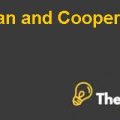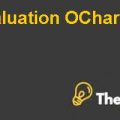
1. Standard setters are considering requiring firms to capitalize all lease obligations, including those for operating leases. How would this standard affect the balance sheets and the leverage ratio, total liabilities to total equity for Morton’s and O’Charley’s? Qualitatively assess how this standard would affect the income statements of these restaurant claims. As an investor would you support such a proposal?
If the exposure draft of capitalization of all lease obligations is implemented then the organization will be required to recognize the leased asset in the balance sheet with a corresponding increase lease obligations, which are expected to be paid over the lease term. In the proposed changes, all the leases are expected to be appeared on the balance sheet on the basis of the right to use asset and liability for lease obligation.
The purpose of the exposure draft is to improve the transparency of the financial statements and to provide sufficient information to lenders, present and potential equity investors and other creditors. Further, it will also provide useful information to the users, which will help them in making appropriate decisions in their capacity as capital providers.
The balance sheet of the company would be substantially inflated due to the recording of lease obligations and a corresponding right to use the leased asset. The leverage position of the company would be worst because it will increase the burden of lease payments, hence, deteriorating the liability. Further, an increase in liability would threaten the debt to equity ratio of the company, which would badly impact the credit rating that might raise difficulty for the company to obtain additional finance. Moreover, there could also be a possibility that the lenders might demand higher interest rate for suffering high debt risk.
Along with the bad impact on debt to equity ratio, there is also some major disadvantages as well, such as, the organization will be required to bear additional time and cost to collect and process substantial data to determine the value of the amount capitalized, which will increase the administrative burden of the organization and will also require substantial time to perform complex calculations (Monson, 2001)
On the other hand, there are also some disadvantages of capitalization of all leases as capital lease as well, i.e.; the company do not legally do not owns the right to the property, so in case of company’s liquidity, it may result in some legal cases on the asset
The proposed changes in the standard will affect the income statements of these restaurant because the leased asset will be recognized at the present value of the asset with a corresponding increase in liability and the periodical lease payments will be regarded as a decrease in liability. Further, the income statement will only suffer increased burden of interest cost, so it means that the company will report a favorable earnings before interest and tax.
From an investor’s point of view, the proposed standard will increase the usefulness of the financial statement and the investor’s will have enough idea of the leased assets and obligations of the company.
2. Should credit analysts distinguish between off-balance sheet leases and liabilities reported on the balance sheet? Why or why not?
Off balance sheet lease financing refers to the financing strategy that secures the use of the asset without recognizing the liability in the balance sheet.
Credit analysts shall distinguish off-balance sheet leases and liabilities due to the following reasons,
a) It shows better financial position
Off-balance sheet items significantly affect the key financial ratios, so if the key components of assets or liabilities are eliminated from the balance sheet then shareholders can’t appropriately analyze its financial impact on leverage ratio, interest cover and return on capital employed. (Lightner, 2013)
b) It increases transparency
Companies may prefer off-balance sheet items to present a sound balance sheet with sufficient cash liquidity and less indebtedness but on the other hand, if this practice is avoided and all the assets and liabilities are recorded in the balance sheet then it will increase the transparency and eliminates the aggressive earning practice of management (Monson, 2001)..................................
This is just a sample partial case solution. Please place the order on the website to order your own originally done case solution.












